Tag: Business Intelligence
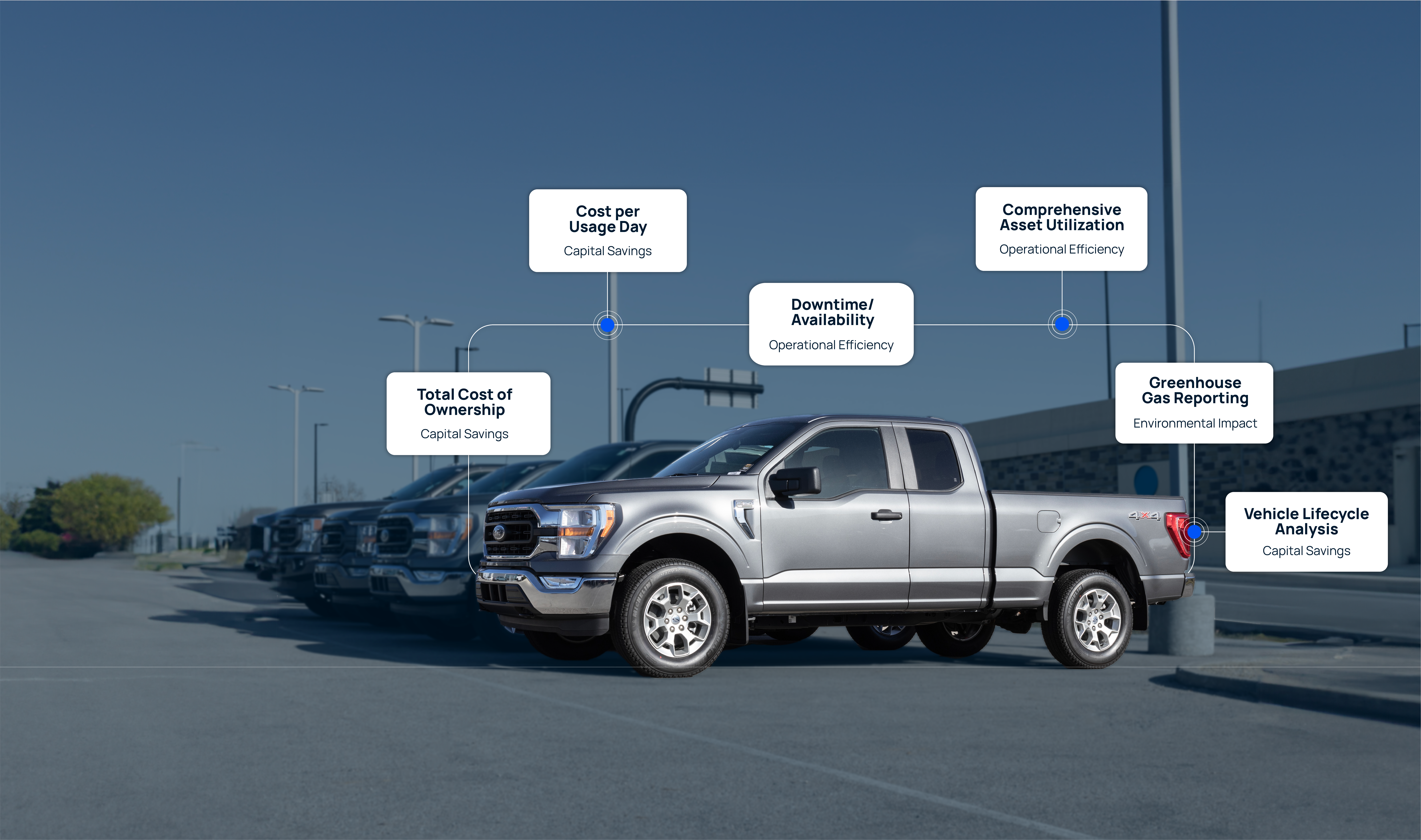
Utilimarc announces the release and performance of its Rightsizing Solution designed to help clients reduce vehicle and equipment expenses.
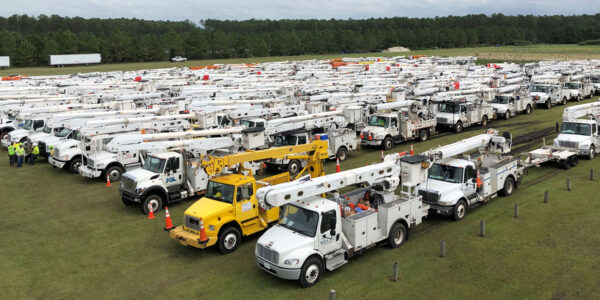
Fleets preparing for the replacement of ICE vehicles for EV alternatives are looking to understand true utilization of assets to identify surplus needs and rightsizing of assets.
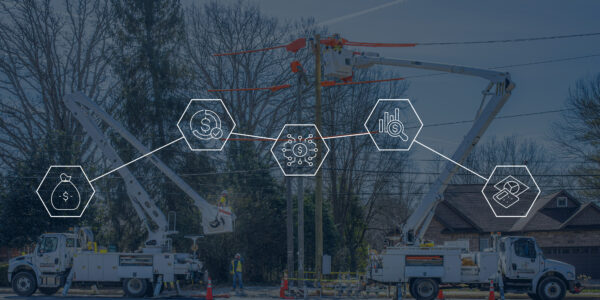
Many fleet managers are utilizing idle reduction tools not only to decrease fuel consumption and emissions, but as a strategy to reduce fleet costs. With budget-cuts happening all around, opportunities for scaling back unnecessary spend are top-of-mind for every fleet manager today. Luckily, idle reduction efforts are a successful approach to this challenge.

For fleet managers, reducing GHGs starts with an accurate understanding of how much their fleet emits in the first place. This is where GHG reporting comes in. Utilimarc’s GHG analytics takes data from different sources to help fleets measure and report their emissions. This could be at a higher level or down to the details of which vehicles, classes, and fuel types are contributing the most.
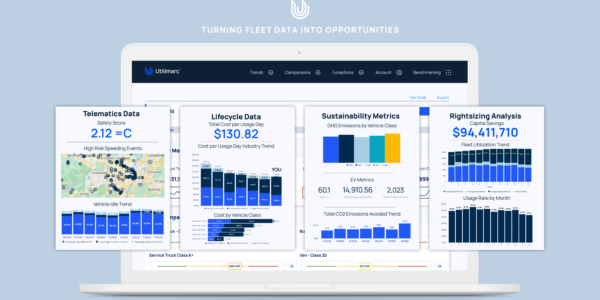
Fortunately for fleet managers today, BI is an easy-to-implement tool that converts data sources into new opportunities. Using these key insights, managers can cut out ineffective guesswork and instead, strategize with informed, data-backed decisions. In this article, we explore the top five reasons why every fleet striving for total optimization should be using Business Intelligence for their data analysis needs.

Many fleets today have their own reasons for needing accurate GHG reporting. It could be to monitor the implementation of EVs or alternative fuels, or simply to understand which vehicles are contributing most to their overall emissions. Regardless of the reason, there are several ways a fleet could benefit.

The start of a new year brings a new set of objectives and reflection on last year’s goals for most fleet managers. Did your fleet performed as you hoped it would? Do you have what you need to work toward goals for 2023? Business intelligence is a great tool for helping fleets prepare for these changes and create a forward-thinking management strategy.

When it comes to fleet management, the E in ESG can carry a bit more weight. With transportation being one of the greatest contributors to global greenhouse gas emissions, environmental preservation is becoming increasingly important across the industry. The practice of ESG at a higher level helps fleets to stay accountable for their negative and positive impacts.

While we have recovered from the pandemic in many ways, there are new challenges within the supply chain that persist, adding another layer of complexity to fleet management and vehicle replacement. While managers used to plan replacement a year in advance, current lead times have increased to 2-3+ years depending on the vehicle class.

An emissions profile is a powerful tool for supporting fleet sustainability initiatives. The profile closely details a fleet or organization’s total carbon emissions within a certain period of time. This profile includes emissions from activities ranging from energy generation, fuel consumption and other daily operations.
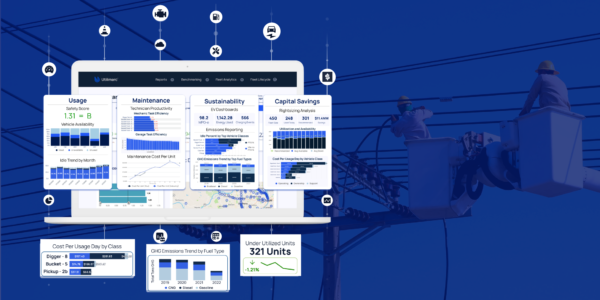
BI helps fleets to futureproof by creating a reliable and repeatable management strategy that is flexible to change. With the fleet industry changing so rapidly today, this helps managers look toward long-term success, focusing on cost-reduction opportunities and sustainable resource management.

One of the greatest benefits of implementing business intelligence is the ability to turn disconnected data systems into actionable insights. Once fleet data is streamlined and cleaned, BI bridges the gap between the initial point of data collection to seeing data-driven results.
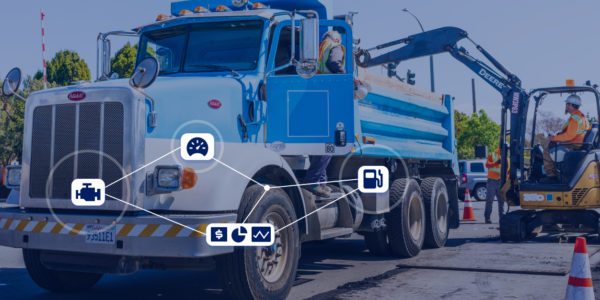
Starting with reliable, high-quality data is the first step for successful reporting. This gives your organization a full view of what’s going on within, share reports with full confidence and make smarter, data-backed business decisions. To get to this point, however, data quality starts with unified data streams, error-free information and appropriate storage.

The common goal of fleet sustainability is twofold. First, to adopt practices that protect the wellbeing and future of the world around us. Second, to ensure the future success of your organization. This is appealing for organizations striving to be more conscientious with their practices while still reducing waste and costs internally.

Fuel is one of the biggest capital spends for any fleet, so detailed reporting on fuel spend is always important. As fuel prices rise, however, ensuring that reports are accurate is critical to a successful fleet budget and preventing fuel fraud.

Sustainability is interwoven into futureproofing for many reasons. At its core, the idea and goal of sustainability is to carry out our actions and meet our needs without jeopardizing the ability of future generations doing the same. This is essentially the same goal as futureproofing, no?

Utilimarc, an industry leader in fleet analytics and authorized Geotab premier reseller, today announced its partnership with Geotab, a global leader in IoT and connected transportation.
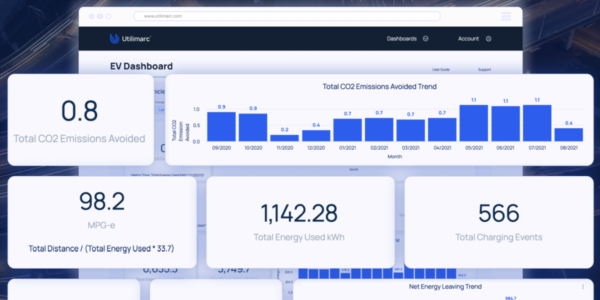
It’s no secret that managing an EV fleet comes with its own unique challenges. From maintenance training to new data streams, adjusting metrics to lowering emissions – there’s a lot to take in. Breaking down new metrics and data streams in an intuitive dashboard can help you make a seamless transition to electric.

High quality data can be tricky to recognize as valuable at first glance. It isn’t a tangible asset that goes out to job sites on a daily basis. It is, however, one of the most impactful tools a fleet manager can have when it comes to spotting opportunities and tracking progress toward goals.

There are two ways someone can gain the status of a true fleet data analyst. By spending years in the fleet industry garnering deep domain expertise, or by utilizing business intelligence as your secret weapon.

A data analyst with fleet cred is an invaluable addition to a fleet management team. “Fleet cred” is the deep domain knowledge of the world of fleet.
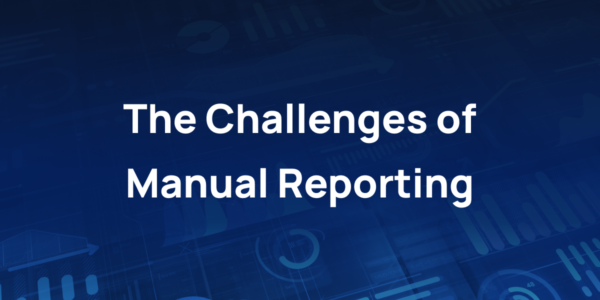
Manually reporting fleet data carries the implication of hidden costs that are aggregated throughout the reporting process. Inefficient, legacy systems can lead to wasted time, erroneous data and an unreliable dataset.
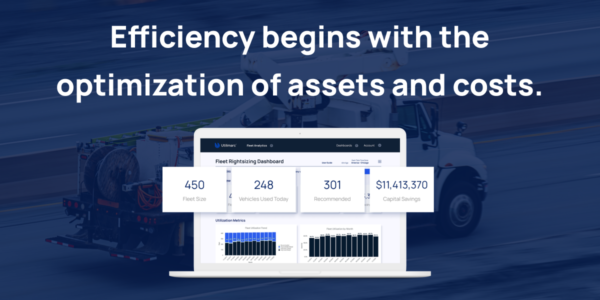
Utilimarc is proud to announce the release of a new, fully-integrated Business Intelligence Platform for fleets– creating a cohesive, singular platform for their current suite of fleet management applications. The platform bridges the gap between siloed data streams and the informative insights needed for smarter fleet management.
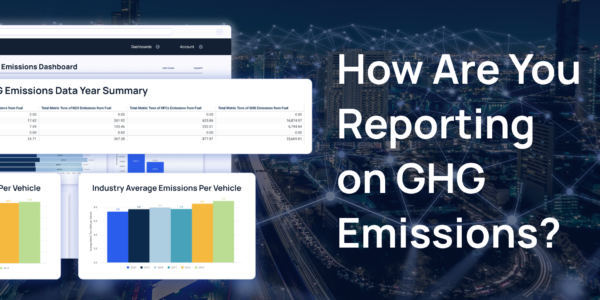
Greenhouse gas reporting –also known as carbon accounting– is becoming more common at organizations, whether by requirement or done voluntarily for transparency. These reports measure how much emissions the organization emitted in a period, breaking it down into which activities contributed what amount and exactly which GHGs were emitted.
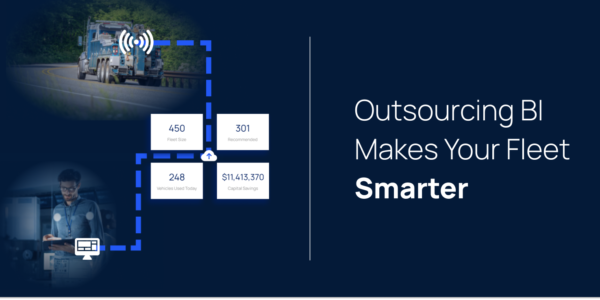
Managers spend over 70 percent of their time simply trying to consolidate their data into something comprehensible, leaving barely any time for drawing actionable insights from this data, in addition to carrying out all their other duties.
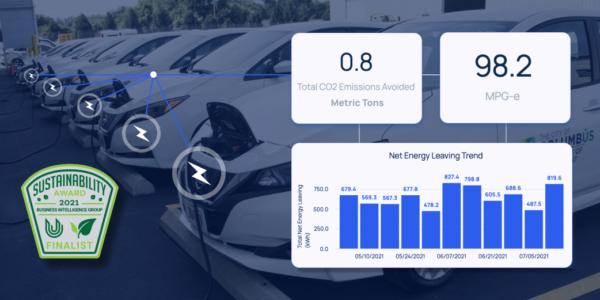
Yesterday, the Business Intelligence Group named Utilimarc as a finalist for the Sustainability Leadership Award in the 2021 Sustainability Awards program. The Sustainability Awards honor the people, teams and organizations who have made sustainability an integral part of their business practice or overall mission in 2021 and going forward.

This week, Utilimarc announced the signing on of new customer, Avista Corp. to their Business Intelligence Platform for fleets. Avista was interested in creating a business case as well as being able to scale for electric vehicle data, a key aspect was to focus on integrating all of their organization’s fleet data systems into a single analytical platform and to ensure accurate meter insights in order to create a more effective fleet management process.

With a push for real-time data in recent years, it is no surprise that most of the EVs being built by top manufacturers like Ford, LMC and GM will have OEM telematics, GPS tracking and driver safety technology already built in.
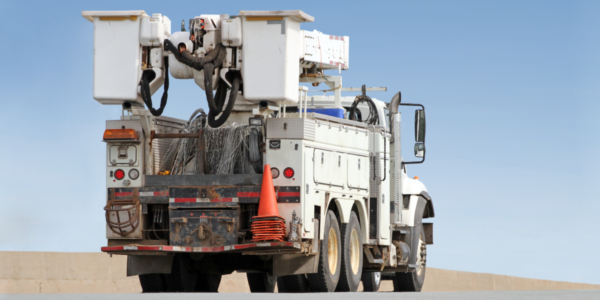
This week, Utilimarc announced the signing on of new customer, Consumers Energy to their Business Intelligence Platform for fleets. Consumers was in need of additional insights and reports that all forms of end users could count on to track fleet performance and core KPIs – to ensure better service for their customers, plan for new technology adds and to ensure the optimization of their current fleet assets.
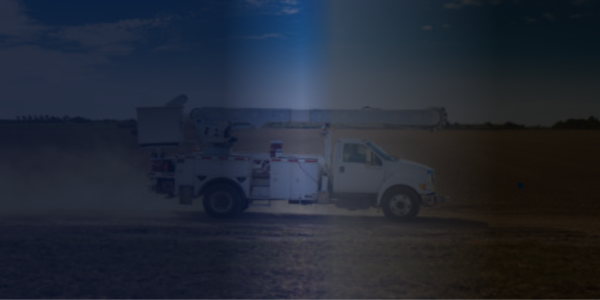
This week, we’re breaking down how COVID-19 is affecting the fleet industry, and how utilization, smarter spending and a shift in mindset might be what’s next for the industry
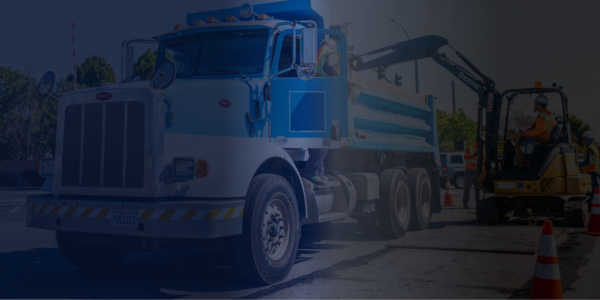
This week, we’re talking about how data application can affect your fleet management strategy. It’s more than just securing your data and looking at dashboards. Data application is not just one facet of your fleet management strategy, it’s all encompassing.
Understand how your replacement decisions and projections affect your technician needs to a garage specific level.

From 2006 to 2013, the average price for the 4×4 increased from $44,722 to $52,796, which is an increase of over 15%.